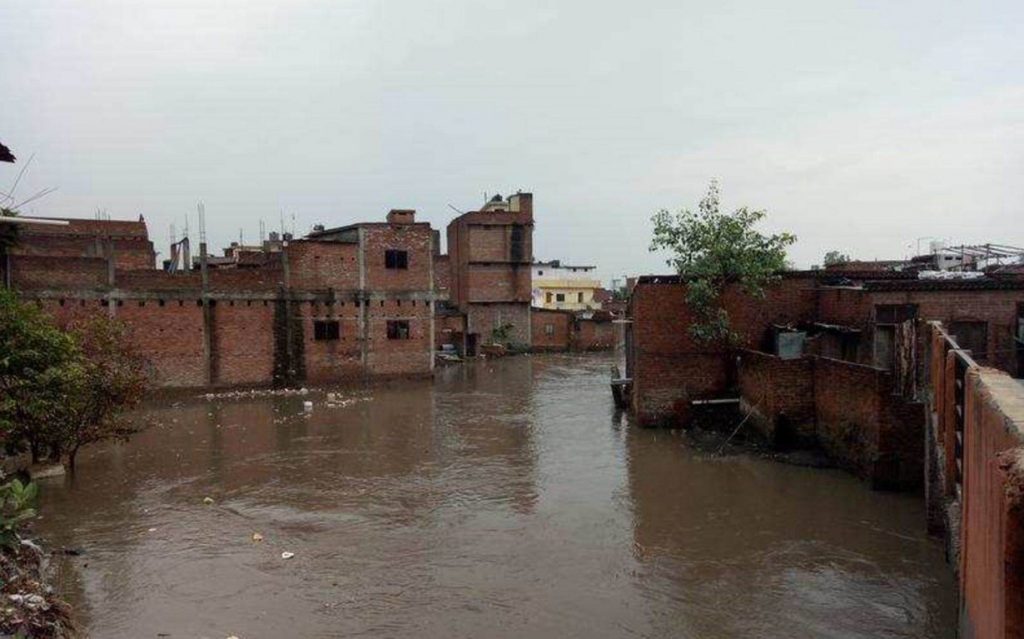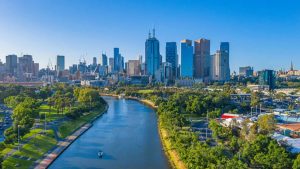
In The City Of Rudrapur, Uttarakhand… The Unholy River Kalyani
A few decades ago, the citizens of Rudrapur, Uttarakhand would walk down to the local river to collect drinking water, wash their clothes, take a bath, or just swim and enjoy themselves. Today, doing any of this is out of the question as it can have serious health consequences.
Like many rivers around the world, Rudrapur’s Kalyani river has become polluted and is in desperate need of our help. It is the lifeline of the city, and it must be protected from disappearing completely. In March 2019 the river had 7.6 Ph Level when the acceptable consuming rates are 6.8-7. This makes it clear that the river has suffered and will continue to unless action is taken.
THE PROBLEM
The River Kalyani originates from the Tanda forest area of district Nainital and passes through the agriculture fields of Pantnagar followed by the Integrated Industrial Estate (IIE), Pantnagar.
River Kalyani receives wastewater from the Common Effluent Treatment Plant (CETP) to which 236 industrial units are connected.
About 286 industrial units are not connected to CETP due to the lack of a conveyor system. However, these industrial units have made their effluent treatment plant (ETP) as per requirement.
Apart from these sources, the Kalyani river also receives municipal drains from residential areas of Rudrapur city located adjacent to the industrial estates. What was once considered a river pure enough to wash off one’s sins, has now deteriorated to a wasteful dump.
Administrative lapses are largely responsible for deteriorating the health of the river Kalyani. Where there was once place and way for the river to flow, a wall was built distorting it and making it stagnant. The banks of the river were occupied and houses were established there.
THE ATARIYA TEMPLE AND ITS SIGNIFICANCE
The race to seize the banks of the Kalyani river begins at the Atariya temple. The people consider the river holy, so the land mafia started occupying the land along the river banks, which resulted in the river slipping from its original place.
The river used to flow a hundred and fifty meters away from the Atariya temple. The devotees visiting the temple used to take bath with the belief of washing off their sins, but when the houses were built, people started dumping the wastes into the river.
The residents were unaware of the intensity of the situation and were unable to take care of it.
With this, the sewage outfalls opening into the river continued to deteriorate the health of the river Kalyani.
If the administration had started an exercise to repair Kalyani’s deteriorating health, perhaps Kalyani would have survived these unfortunate wrongdoings.
THEN VS NOW
About two decades ago, the flow of the river was very fast. The width of the river was around 250 meters, but gradually the illegal occupations severely ruined the river.
Now, even the animals are unable to drink water from it because of its vile nature. Ironically, this river was once the main source of water for the city, but now it is too toxic to be used.
WHAT ARE THE GOVERNMENT PLANS?
The District Magistrate of Udham Singh Nagar, Neeraj Kharwal, when asked about the plans to revive the river in 2019 answered “There is a 360-degree plan in the pipeline. Kalyani will not only have a facelift but, bio-mapping will be done here. It is planned to encourage water sports here as well. The irrigation department has been given the onus of the same. They have sent a detailed project report and it will be executed as soon as we get the permission”
He also added that “the natural water bodies in the district are de-silted once a year and so will Kalyani.” “This would not only increase the storage capacity but also recharge groundwater and will help in the rejuvenation of the river.”
COMMUNITY INITIATIVE
Two years ago the state government claimed that the river will be taken care of. Besides a cleanliness drive held in March 2019 under ‘Swachh Bharat Abhiyan’, nothing else has been done to support their claim.
Unfortunately, this was not enough. The accumulation of trash and garbage in the river is so severe that it has turned completely stagnant. This also increases the risk of the spread of diseases such as Dengue.
Although the initiative was relevant, it could not achieve much. The extent to which the river is polluted, could not be salvaged in one try. Moreover, the locals were not trained to clean efficiently and did not understand the fundamentals of it.
SAVING THE RIVER
The only thing which still might be able to save the river is a collective effort by the locals of Rudrapur and everyone that this river affects.
- Spreading awareness about the problem is crucial. Explaining simple and applicable solutions to the locals by having awareness rallies, encouraging a ‘minimum waste lifestyle’, and practicing Reduce-Reuse-Recycle to clean the rivers will ensure that the locals are doing their part in saving the river.
- With local participation, community ownership is also important because they are paramount in being able to demand change.
- The local people need to feel connected with their river in order to save it, spreading awareness about its history and forming an emotional bond with the river will make people realize that the river is its best attraction and not the biggest liability.
- Locals should be encouraged to ask the government to provide them with better sewage systems as a proper sewage system is one of the main parts of a well-equipped city. Well-planned sewage disposal will be a step towards saving the river.
The locals are the ones directly affected by this problem and they must be a part of its solution.
THE EARTH5R RIVER RESTORATION APPROACH: CIRCULAR ECONOMY BASED SOLUTIONS
- Creating a project that balances the social, environmental, and economic interests of a community is important to achieve sustainability. When a project is planned in consideration of all these aspects, it will create a long-lasting program that benefits everyone.
- By establishing circular economy based programs that have active collaborations with local stakeholders such as city administrations, local community, universities and educational agencies, private sector companies, and NGOs / NPOs, local problems like bad waste management can be turned into opportunities for the local community.
- Program efforts to clean River Kalyani should be focusing on integrating all society components that include people as much as technology and nature and creating local job opportunities thereby creating stronger community ownership which will create a lasting change.
Reach out to Earth5R to know more about solving environmental issues by creating circular economy based sustainability projects
A NEW APPROACH TO RIVER RESTORATION (EARTH5R MITHI RIVER CLEAN UP PROJECT AT MUMBAI)
Earth5R is a part of Mithi river clean up project in partnership with United Nations Technology Innovation Labs (UNTIL), Huhtamäki Oyj, VTT Technical Research Centre of Finland, and RiverRecycle.
The goal is to clean the Mithi with innovative tools while raising awareness on waste management and building a circular economy and livelihood based model to restore the Mithi River.
- Under this project, Earth5R team will conduct various waste management training for the residential buildings, slums, and industries along the catchment of Mithi River.
- Earth5R team will also conduct a large-scale cleanup, waste segregation, and recycling program in the Mithi River area.
- The River will be mapped with the help of drones pre and post-project and the data will be analyzed to develop further solutions.
- Various research on plastic waste will be conducted to develop innovative solutions that support circular economies.
- Children and citizens in various Colleges, Schools, Offices of Mumbai will be mobilized for a solution-based approach to solve the Mithi River plastic pollution problem.
This partnership is one step forward towards sustainable restoration of the Mithi river.
ABOUT EARTH5R
Earth5R is an environmental organization from India with its head office at Mumbai. It works with the NGO sector, Companies and helps them conduct environmental corporate social responsibility (CSR) programs across India. Earth5R specializes in circular economy based projects. Earth5R also offers short term and long term environmental courses.
Earth5R is conducting large-scale online training on COVID 19 Coronavirus prevention, response, management, and self-sustainability. These trainings are conducted on digital platforms in regional languages across India and other countries.
Earth5R’s Global Sustainability Hub is a cross-sector and cross-country collaboration in pursuit of UN Sustainable Development Goals. It is an excellent opportunity for governments and the private sector to engage with communities, use Sustainability-based models to drive economic changes, and create social and environmental impact.
-Reported by Mahek Sachdeva, edited by Shafa Azzahra




